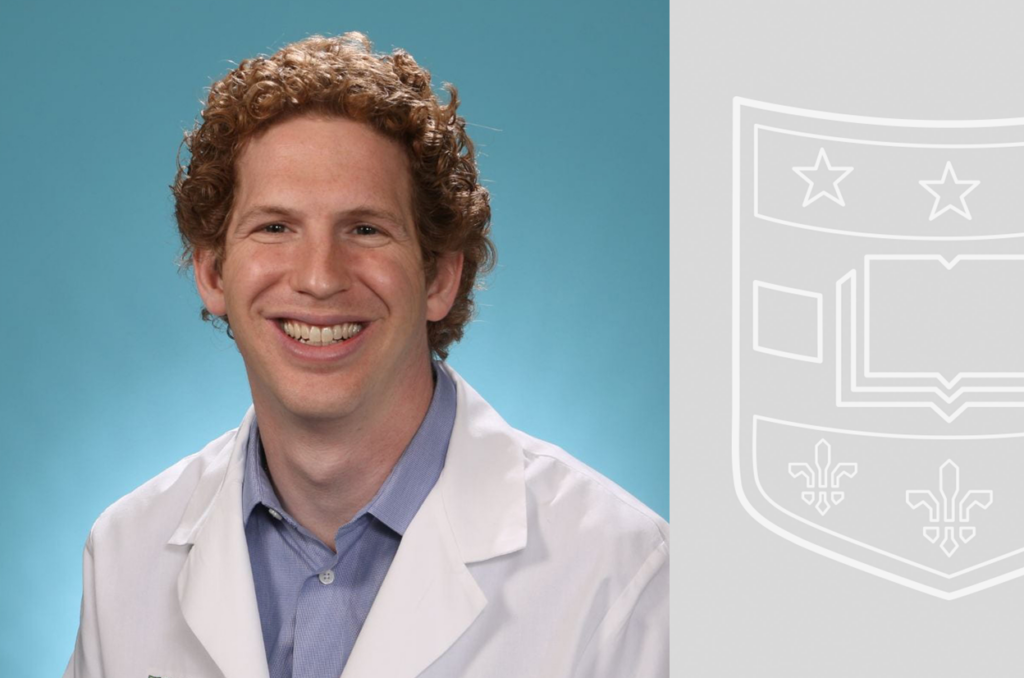Dr. Michael Kramer joined the Department of Medicine in the Division of Oncology as an Instructor in July 2024. He is a physician-scientist with a research and clinical interest in hematologic malignancies, with a particular focus on acute myeloid leukemia (AML). After completing an MD and PhD degree with a focus on computational and systems biology at the University of California, San Diego, Dr. Kramer returned to his native St. Louis to pursue residency and fellowship training as part of the Physician Scientist Training Program at Washington University in St. Louis. His laboratory research has focused on the pathogenesis of AML. He has a particular interest in understanding how common leukemia initiating mutations set the stage for leukemic transformation by affecting the post-transcriptional regulation of proteins in leukemia cells.
He has published a large scale proteomic and phosphoproteomic study of human AML that identified examples of posttranscriptionally regulated proteins both globally (i.e., in all AML samples) and also in patients with recurrent AML driver mutations, and identified cell surface proteins expressed on AML blasts (but not healthy CD34+ stem/progenitor cells) that could represent novel targets for immunologic therapies. Recently, Dr. Kramer has focused on how mutations in DNMT3A and NPM1 synergize to cause leukemia. DNMT3A and NPM1 are two of the most commonly mutated genes in acute myeloid leukemia (AML), and they occur in the same patients more than expected by chance. When present, both mutations are generally contained in all AML cells in a given patient, and therefore are attractive targets for therapy.
He has been focusing in particular on how these mutations alter the post-transcriptional regulation of key signaling proteins in the cell, and how these events set up hematopoietic stem and progenitor cells so that they can tolerate abnormal signaling events that drive and maintain the leukemia state. He is also interested in utilizing high-throughput protein-protein interaction screening to identify key protein interactions with oncogenic driver proteins that can be targeted therapeutically, and in utilizing machine learning approaches to predict and design novel molecules and peptides that interact with key oncogenic driver proteins. Clinically, Dr. Kramer sees patients with a broad range of hematologic malignancies as part of the inpatient Bone Marrow Transplant service, and he is involved with running a clinical trial of a novel allogeneic CAR T-cell treatment for patients with leukemia and lymphoma. His key interests are acute and chronic leukemias, Lymphoma Myelodysplastic and syndrome bone marrow.
